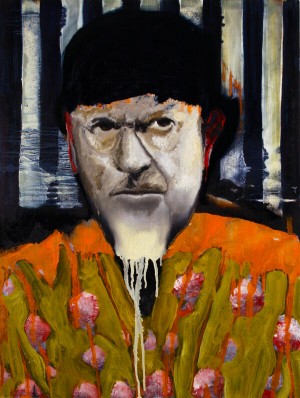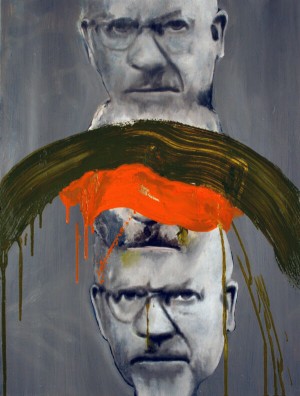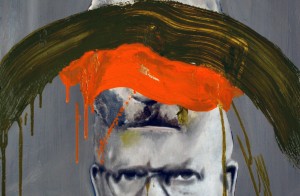The Chosen People? : Two Perspectives
1. Deborah Waxman: Rejecting Chosenness in favor of Distinctiveness
In what sense and to what extent do Jews still believe ourselves to be “chosen”?
This question is part of a larger set
of questions: Must our beliefs about
religion harmonize with our ways of
thinking about everything else? Are
particularistic religious traditions
like Judaism part of a universalistic
discourse that asserts the legitimacy
of multiple paths toward lives of virtue
and meaning and insists on the
fundamental equality and worth of all
human begins? Or should our beliefs
be qualitatively distinct, unbound by
these principles, and thus either in
conflict or living uncomfortably sideby-
side with them? In other words, is
it possible to believe that all people
are created equal and to believe that
Judaism is superior to other religions?
In its earliest expressions, the Jewish religion, like others of its era, asserted supernatural revelation; in this premodern theology, a hierarchy of religions and peoples existed, and how that hierarchy was ordered depended on one’s place in the world. Given this context, it is not surprising that Judaism asserted that Jews held the status as God’s chosen.
The onset of modernity – the rise of scientific rationalism and the emergence of the modern nation-state, which drew its authority less and less and finally not at all from supernatural sources – challenged religion’s explanation for who people are and how we should behave. Jews were intensely affected by these developments. Jews became individual citizens, free to make decisions we had never before faced, free to assume a range of identities never before imagined – including secular or purely cultural ones. “Be a Jew in your home and a man [sic] on the street,” Judah Leib Gordon famously proclaimed in the mid-19th century.
In 20th century America, deeply informed by democratic principles, Gordon’s bifurcation of private and public identity was widely embraced as a “solution” to preserving Judaism in the modern world. In the postwar, suburban Conservative Judaism in which I was raised, religion was not only private, but also particularistic, quite unlike the universalistic messages I was taught in school (though not necessarily in competition with them). The scientific method of my public school lessons addressed itself to “how” questions. The religious principles taught by my rabbi and Hebrew school teachers addressed themselves to “why” questions. In ways implied but never explained by any of my teachers, America’s democratic principles, based in natural law – most especially the claim that all people are created equal – would reconcile any conflicts or, if need be, would supersede any supernaturally based, particularistic claims.
That response – that somehow we all are equal and yet Jews are chosen – did not satisfy me. I turned to Reconstructionism in part because Reconstructionists reject the divide between religion and science, locating Jewish authority in the Jewish people, the one constant throughout all of the various permutations of Judaism in its long history. Judaism (along with all particularistic religions) is part of a universal discourse, united in a shared search to discern the divine. Jews are bound by the same constraints and obligations as are others, including the liberal requirement of not harming or limiting another unless the collective whole is somehow threatened by his or her behavior. Particularistic expressions of Judaism – prayers, rituals, texts, symbols – are the means that the Jewish people have developed over the ages to aid us in our search for the divine, but they are not inherently superior to other cultures’ expressions; they are just the most meaning-filled for Jews.
By framing religion within a universal discourse, the Reconstructionist approach asserts that Judaism can and should influence all areas of our lives and touch all facets of our behavior. The goal, contrary to premodern Judaism, would be not to separate and segregate Jews from the wider world, but rather to empower us as Jews, out of our rich tradition, to contribute to the overall well-being and improvement of the whole of human society.
By asserting that universalistic values ultimately take precedence over particularistic ones, Reconstructionism harmonizes the divide between modern and religious sensibilities. What is necessarily set aside is the belief in Jewish chosenness. It was Mordecai Kaplan’s rejection of the belief in Jewish chosenness – rather than his introduction of the bat mitzvah, his provocative definition of Judaism as civilization, or any of his other innovations – that finally led to Kaplan’s excommunication by ultra- Orthodox authorities in 1945. Yet, in my view, setting aside the concept of the Jews as God’s chosen people is one of the most significant theological choices we should embrace in this post-Sept. 11, postmodern era.
The specific reasons for setting aside Jewish chosenness are long and detailed, but can be summarized by these points:
The concept of “chosenness,” only hinted at in the Hebrew Bible, was developed during periods of Jewish history when Jews were deeply persecuted and searching for some supernatural explanation for their suffering. Like other practices and beliefs, it need not be retained simply because it once existed in the Jewish canon of beliefs. We no longer believe that God contravenes nature or acts in history. If God is not a person, then who is choosing the Jews?
Even if the concept is reinterpreted (e.g., to emphasize that the Jews are choosing to be God’s chosen, to assert that being chosen entails a set of responsibilities, or to suggest that other peoples are chosen for their own distinct missions), it still implies a hierarchy and thus lends itself far too quickly to chauvinism and other anti-democratic behavior.
In an era that values diversity and multiplicity, in a worldview that asserts universalistic ends even by particularistic means, Reconstructionists conclude that “chosenness” cannot be reconstructed.
Now, for some Jews, even ones who otherwise reject all religious expressions of Judaism, the concept of the Jews as the chosen people is too dear to set aside. For them, being chosen is the point of being Jewish. We humans are particularistic: We understand ourselves and our world through story and through symbol. Taking advantage of the specificity of our rich inheritance enables us to connect vertically, drawing on the spiritual resources of our ancestors, as well as horizontally, as we seek to foster connection and establish justice with other Jews and, indeed, with other peoples. Particularism has its value.
However, I believe that means and ends must work in accord rather than against each other. In the postmodern world, where boundaries are fluid and Jewish identities are multiple and multiply defined, where many Jews seek at once to preserve Jewish heritage and to participate fully in the broader society, setting aside the concept of the Jews as the chosen people is not a concession or a loss, but a positive course of action. Rejecting chosenness is an explicit embrace of a modern discourse pointing toward universal truths; it is an articulation of harmonious and consistent principles out of competing voices. Rejecting chosenness is about getting down to the hard work of being one of the many peoples of the world, jostling with one another on the path toward the divine, rather than holding ourselves separate and nurturing a belief in God-given superiority. As postmoderns, we may have the capacity to hold multiple and conflicting values. When it comes to chosenness, I would argue that that we should not indulge in this capacity; by moving beyond chosenness, we make a deliberate statement about our highest values.
The Jewish people retain a vocation that emerges authentically out of Jewish history. It is responsive to the current environment, which it seeks to shape. May we all be strengthened to work for peace, justice, and lovingkindness.
2. Nancy Fuchs-Kreimer: Reconstructing Chosenness in Ecumenical Perspective
The first time I encountered the idea that Jews were a “chosen people,” I learned that this was a mistaken and even pernicious belief that was held by other Jews. The rejection of chosenness made sense to me then as a 12 year old preparing for her bat mitzvah in a Reconstructionist congregation. It has continued to make sense to me over the years, for all the reasons that Rabbi Deborah Waxman so eloquently lays out. I value, as Waxman does, the forthrightness of the claim that my ancestors may have believed themselves to be in a special relationship to God but that I need not share their belief. In my experience, changing the wording of blessings about chosenness – blessings that come at key liturgical moments – highlighted the gap between the traditional liturgy’s worldview and our own. In my case, it motivated me to embrace enthusiastically the study of other religions. I could be loyal to my people but feel free to find spiritual wisdom further afield.
Yet, as I entered the world of Christian-Jewish theological dialogue in the heyday of the post-Holocaust conversation, I found that my Christian partners were dismayed by my rejecting the idea of the divine election of the Jews. Their tradition was based on being the “new Israel.” These particular Christians were striving to rid Christian doctrine of the negative implications for Jews that this idea had historically carried. They did not, however, want to give up the concept that God’s work in history had taken a special turn with the call of Abraham. I realized that to deny my people’s special relationship with God was, paradoxically, to dishonor their belief, not what I aspire to in dialogue. My pluralism forced me to take their faith seriously, including their faith in my chosenness.
Later, I found that Muslims, too, built their community’s sacred mission on the special role of Abraham and his favored son, Ishmael, in God’s plans for humanity. The Qur’an shares with the Midrash the story of Abraham breaking the idols in his father’s shop; traditional Islam sees any faith other than pure monotheism as sinful. Muslims are often shocked to hear the unorthodox way in which I, a member of one of the “peoples of the Book,” relate to some of the teachings in it. Although we members of the “Abrahamic tradition” disagree over which of us is now the special people of God, our three traditions share a common thread: elective monotheism. In rejecting chosenness, I am rejecting one of the strong bonds that unite us with our two major faith partners.
Furthermore, no matter what I choose in my own religious practice, I cannot simply ignore a core piece of our tradition. The idea of chosenness has not gone away. As a Jew, I still own it, even if I do not speak of it in my prayers. In the interfaith encounter, I have to resist the temptation to claim only the parts of Judaism I love. If I skip over the Jewish ideas I find objectionable or, more often, if I explain that they belong to someone else – “the mistaken Jews” – I am acting in a way that is both arrogant and untrue to my own pluralistic commitments. My dialogue principles require that I learn to understand the beliefs of my co-religionists even when I do not share them.
This is especially true when theology and politics intersect. It is too easy to suggest that objectionable views belong only to those “other” Jews, settlers on the West Bank, for example, rather than noticing when they occur closer to my own world. I discovered this from listening to Christians condemn other Christians for their anti-Semitism. After renouncing the theology those “others” believe, they would then reveal, in much subtler form, the same prejudices. As dialogue has forced me to engage sympathetically with more of Judaism, including the belief that we are God’s chosen, I have been better able to see the sense of Jewish superiority when it appears in my own Jewish subculture. In my experience, the best dialogues turn out to be with people who remain self-critically but lovingly engaged with the breadth of their traditions and communities.
A rich conversation emerges when we each confront with honesty our thick and complicated religious heritages. Over the years, I have seen Christians, then Jews, and more recently Muslims, grow increasingly frank with each other about these issues – admitting to one another that their sacred texts include texts of terror, or, at the very least, texts that lend themselves to being misread in terrible ways. We talk of our traditions’ light and shadows. I am inspired by the work of religious thinkers like the Swedish-American Lutheran Krister Stendahl or the South African Muslim Farid Isack ,who hold onto their belief in the unique truths of their community, while finding ways to tell their story without disparaging others. I have seen Jews, Christians, and Muslims attempt that task with integrity.
On a deeper level, this work has led me to realize that I am not entirely at one with the Kaplanian modernist project that permitted my teachers and me to reject chosenness in the name of the value of the dignity of all human beings. I am not sure that I can fully access the idea of the dignity of all human beings simply through enlightenment values. Certainly, there is no secular path to the sacredness of all human life. That beings were created in God’s image is not a scientific fact; it is an article of faith. Its claim on me as truth, one I accept, comes with no more or less authority than the teaching about the chosen people, something I choose not to accept. I am prepared to live with that inconsistency, but I recognize that it is complicated.
What of the future? I see two opposite trends developing in our society. On the one hand, some communities are becoming more insular, their ideas about each other growing ever more ignorant, the results increasingly toxic. I hear talk of the “retribalization” of our world. At the same time, there is a segment of the culture in which the usual borders between communities, the lines that mark identities, are becoming hazy, if not disappearing entirely. People belong to multiple groups; they belong for short periods of time. Spirituality, not religion, is a source of meaning.
There is a third approach, one that gives me hope. I saw it in action at a recent conference of the Interfaith Youth Core. While proud of their own identities – Jewish, Muslim, agnostic, Fundamentalist Christian, or something else – these young people do not seem to be worried about which of them is the “treasured people of God.” Among the scores of workshops offered at the convention, there was not a single one on comparative theologies of election. Instead, the sessions were bursting with ideas about how to bring more justice and peace into our world. The participants want to do that work together as citizens of this country, as citizens of the shrinking globe. With faith in the power that makes for salvation, I am betting on those folks.
![[the current issue of ZEEK]](../../image/2/100/0/5/uploads/leftistethicistgraphic-52842c6a.png)
- 5000 Pages of Zeek
- Founded in 2001, Zeek was the first Jewish online magazine, and we have over 5000 pages online to prove it, all available free of charge. Read more in the Archive.
More articles in
Faith and Practice
- To-Do List for the Social Justice Movement: Cultivate Compassion, Emphasize Connections & Mourn Losses (Don’t Just Celebrate Triumphs)
- Inside the Looking Glass: Writing My Way Through Two Very Different Jewish Journeys
- What Is Mine? Finding Humbleness, Not Entitlement, in Shmita
- Engaging With the Days of Awe: A Personal Writing Ritual in Five Questions
- The Internet Confessional Goes to the Goats




